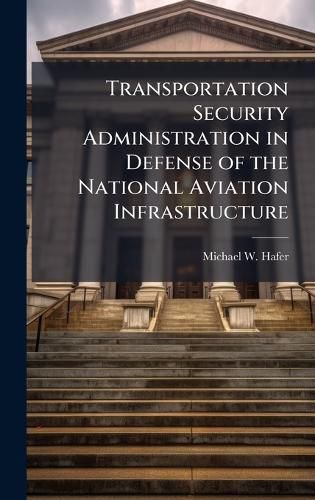Readings Newsletter
Become a Readings Member to make your shopping experience even easier.
Sign in or sign up for free!
You’re not far away from qualifying for FREE standard shipping within Australia
You’ve qualified for FREE standard shipping within Australia
The cart is loading…






The Transportation Security Administration rapidly fielded over 28,000 Transportation Security Officers following the attacks of September 11th, 2001. These individuals received very little training and a minimal level of security screening before being deployed throughout the nation's airports due to a lack of established process or doctrine. After eight years and billions of dollars in expenditures we still find serious breeches within our airport security. Even though we arm the security officers with the latest technology evidence suggests the officers lack doctrine, adequate training, sufficient oversight and overall lack a professional code of ethics. In some cases the TSOs are the perpetrators of crimes and become the threat to airline passengers. This paper examines these security issues and provides recommendations on how to improve the security within our airline infrastructure.
This work has been selected by scholars as being culturally important, and is part of the knowledge base of civilization as we know it. This work was reproduced from the original artifact, and remains as true to the original work as possible. Therefore, you will see the original copyright references, library stamps (as most of these works have been housed in our most important libraries around the world), and other notations in the work.
This work is in the public domain in the United States of America, and possibly other nations. Within the United States, you may freely copy and distribute this work, as no entity (individual or corporate) has a copyright on the body of the work.
As a reproduction of a historical artifact, this work may contain missing or blurred pages, poor pictures, errant marks, etc. Scholars believe, and we concur, that this work is important enough to be preserved, reproduced, and made generally available to the public. We appreciate your support of the preservation process, and thank you for being an important part of keeping this knowledge alive and relevant.
$9.00 standard shipping within Australia
FREE standard shipping within Australia for orders over $100.00
Express & International shipping calculated at checkout
Stock availability can be subject to change without notice. We recommend calling the shop or contacting our online team to check availability of low stock items. Please see our Shopping Online page for more details.
The Transportation Security Administration rapidly fielded over 28,000 Transportation Security Officers following the attacks of September 11th, 2001. These individuals received very little training and a minimal level of security screening before being deployed throughout the nation's airports due to a lack of established process or doctrine. After eight years and billions of dollars in expenditures we still find serious breeches within our airport security. Even though we arm the security officers with the latest technology evidence suggests the officers lack doctrine, adequate training, sufficient oversight and overall lack a professional code of ethics. In some cases the TSOs are the perpetrators of crimes and become the threat to airline passengers. This paper examines these security issues and provides recommendations on how to improve the security within our airline infrastructure.
This work has been selected by scholars as being culturally important, and is part of the knowledge base of civilization as we know it. This work was reproduced from the original artifact, and remains as true to the original work as possible. Therefore, you will see the original copyright references, library stamps (as most of these works have been housed in our most important libraries around the world), and other notations in the work.
This work is in the public domain in the United States of America, and possibly other nations. Within the United States, you may freely copy and distribute this work, as no entity (individual or corporate) has a copyright on the body of the work.
As a reproduction of a historical artifact, this work may contain missing or blurred pages, poor pictures, errant marks, etc. Scholars believe, and we concur, that this work is important enough to be preserved, reproduced, and made generally available to the public. We appreciate your support of the preservation process, and thank you for being an important part of keeping this knowledge alive and relevant.